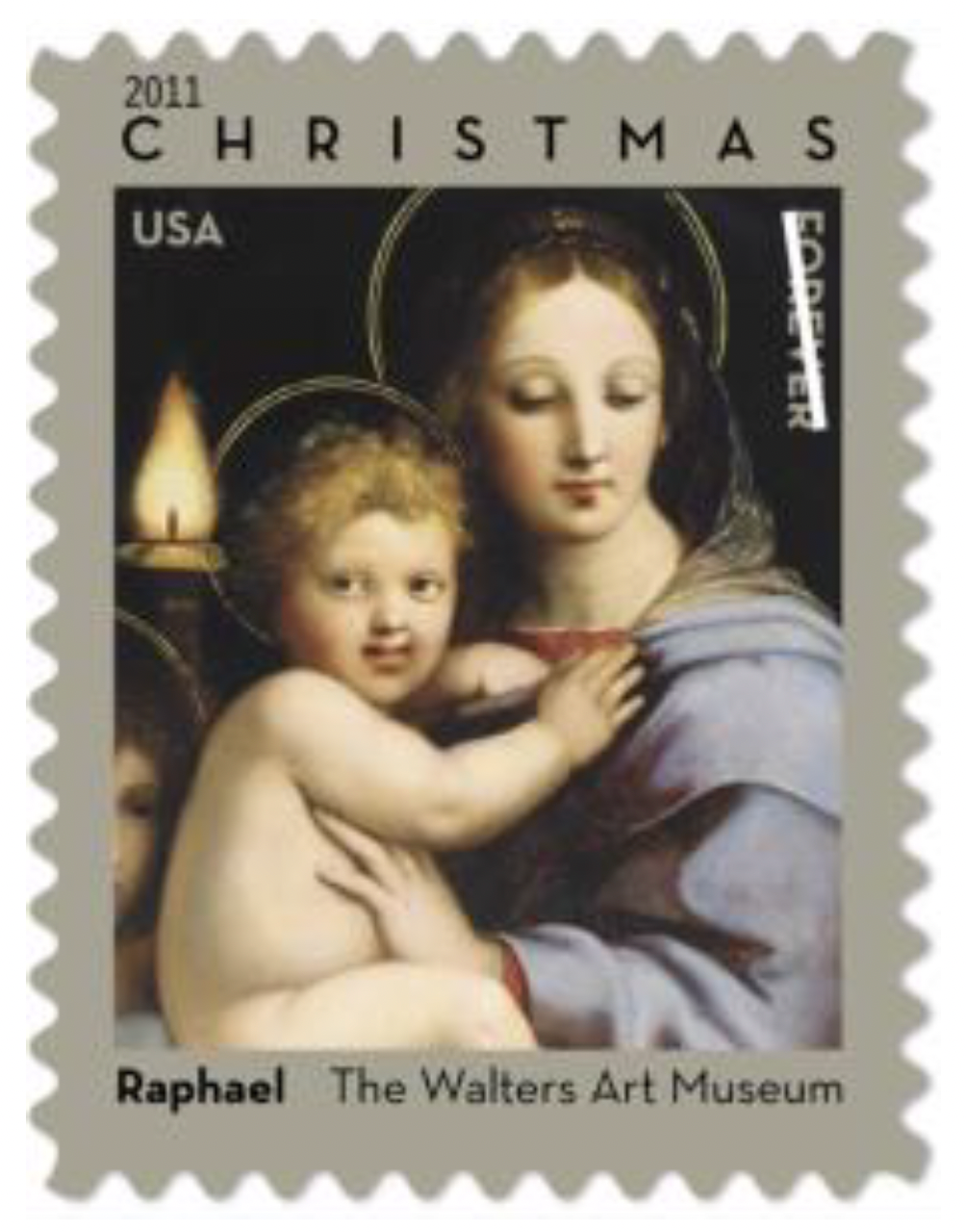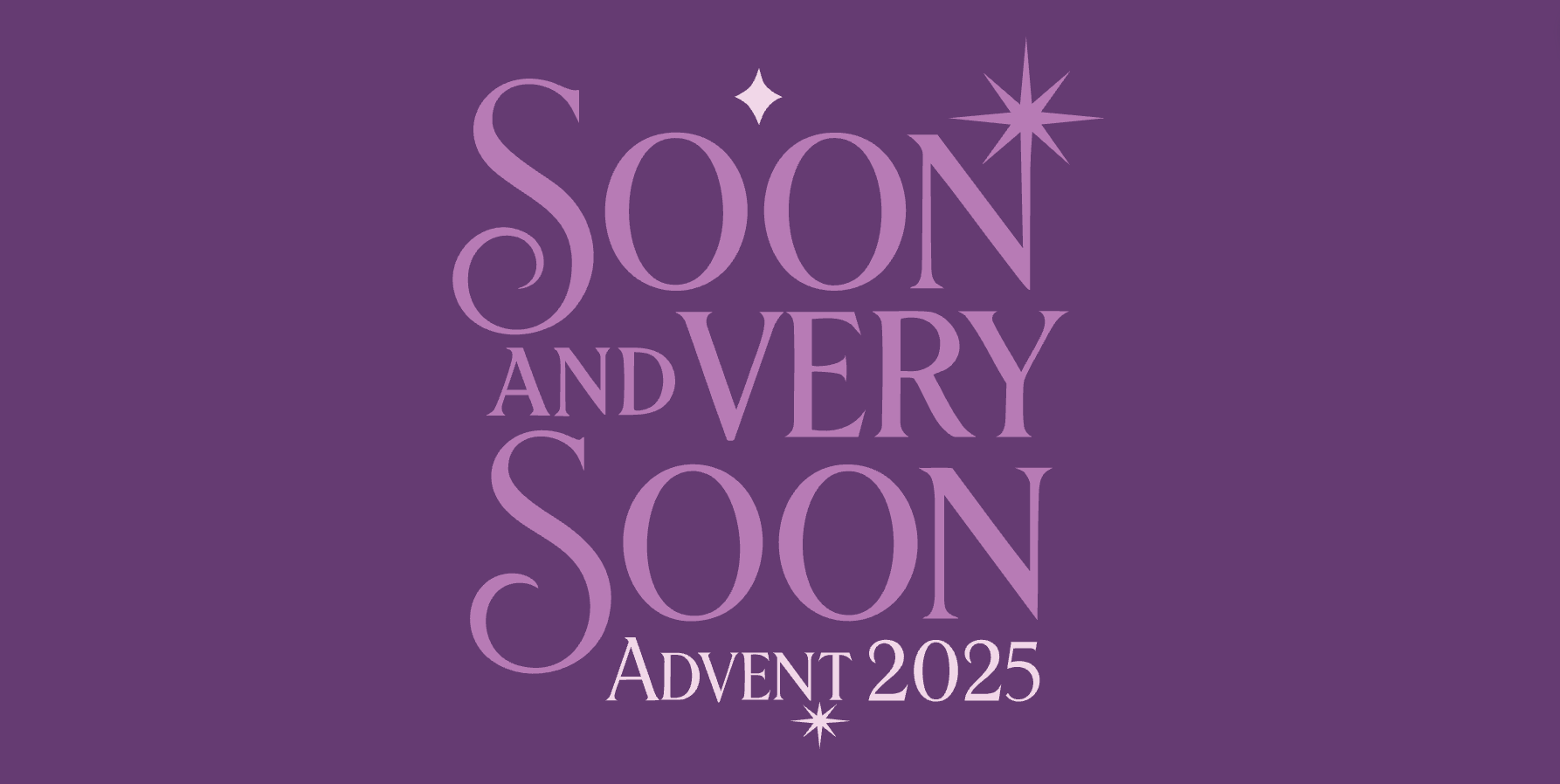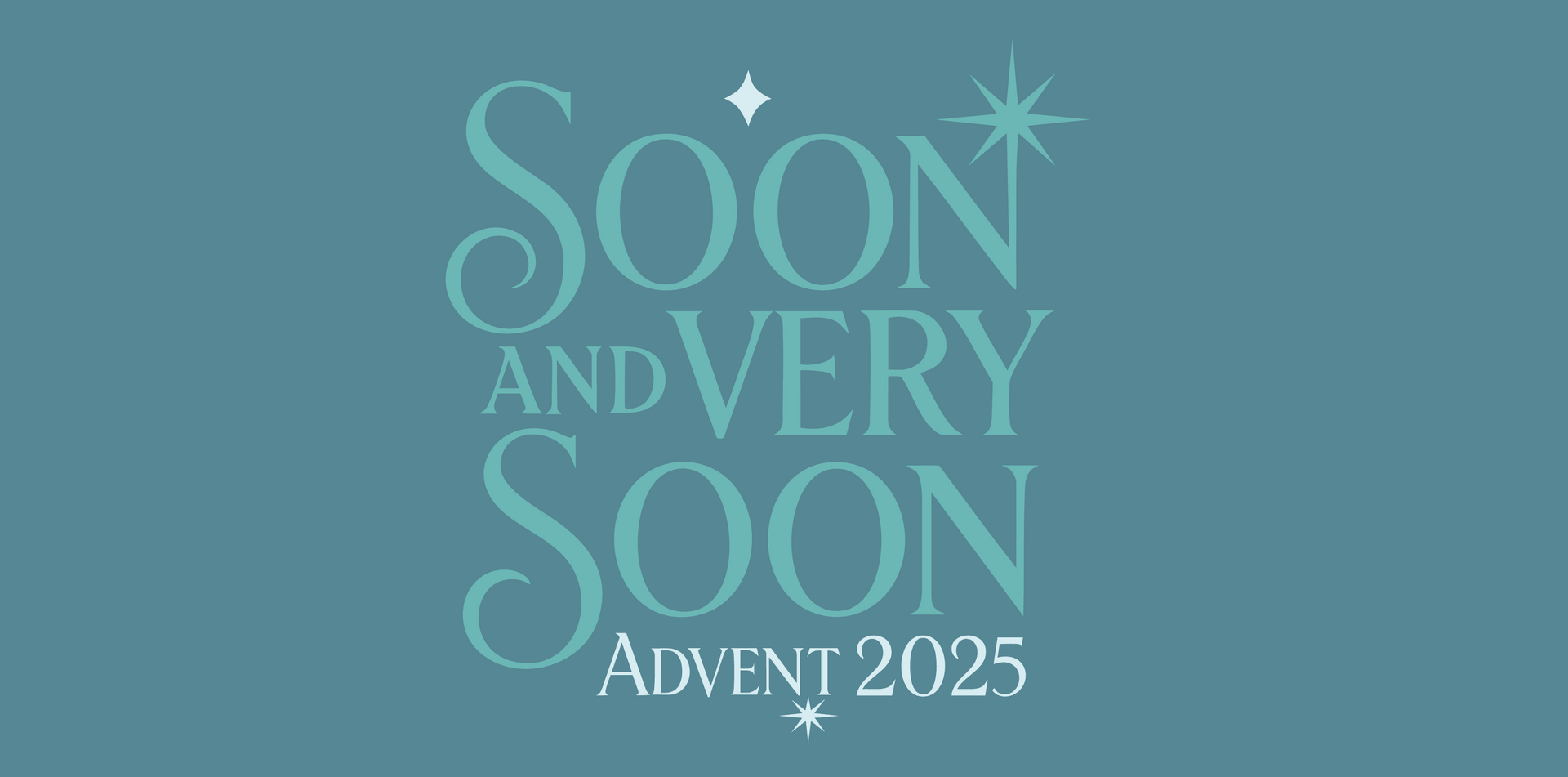Sermon 12.24.2024: Some Lady Holding A Baby
We celebrate Jesus' birth at the darkest point of our year, right after the winter solstice as the days slowly start to lengthen. This is the night we gather in the twilight and light candles, as a reminder that Jesus' birth was a light for people in the metaphorical gloom of occupation and war.

Scripture
Luke 2:1-7
The Birth of Jesus
In those days a decree went out from Emperor Augustus that all the world should be registered. This was the first registration and was taken while Quirinius was governor of Syria. All went to their own towns to be registered. Joseph also went from the town of Nazareth in Galilee to Judea, to the city of David called Bethlehem, because he was descended from the house and family of David. He went to be registered with Mary, to whom he was engaged and who was expecting a child. While they were there, the time came for her to deliver her child. And she gave birth to her firstborn son and wrapped him in bands of cloth, and laid him in a manger, because there was no place for them in the inn.
Luke 2:8-20
The Shepherds and the Angels
In that region there were shepherds living in the fields, keeping watch over their flock by night. Then an angel of the Lord stood before them, and the glory of the Lord shone around them, and they were terrified. But the angel said to them, ‘Do not be afraid; for see—I am bringing you good news of great joy for all the people: to you is born this day in the city of David a Saviour, who is the Messiah, the Lord. This will be a sign for you: you will find a child wrapped in bands of cloth and lying in a manger.’ And suddenly there was with the angel a multitude of the heavenly host, praising God and saying,
‘Glory to God in the highest heaven,
and on earth peace among those whom he favours!’
When the angels had left them and gone into heaven, the shepherds said to one another, ‘Let us go now to Bethlehem and see this thing that has taken place, which the Lord has made known to us.’ So they went with haste and found Mary and Joseph, and the child lying in the manger.When they saw this, they made known what had been told them about this child; and all who heard it were amazed at what the shepherds told them. But Mary treasured all these words and pondered them in her heart. The shepherds returned, glorifying and praising God for all they had heard and seen, as it had been told them.
Sermon
Here’s a true story that happened to a friend of mine many years ago. She was in line to buy stamps.
Customer: “Do you have Christmas stamps?”
Clerk: “No. We just have Liberty Bell and some lady holding a baby.”
Customer: “Can I see them? That’s Mary holding Jesus. I’ll take those.”
At which point the Clerk says, “How did they get a picture of them?”
Customer looks back at my friend to keep from laughing, and so my friend chimes in with, “I bet it’s someone’s interpretation of what they may have looked like.”
Clerk: “Maybe. ’Cause I don’t think anyone took pictures back then.”
(Thanks to Ashley-Anne Masters for sharing that true story!)
Yes, the story is jarring. Especially for me, who spends my days talking about Jesus professionally. I don’t presume that everyone shares my religious views, but it is always startling to me when people don’t even recognize Jesus, even if he is only an image on a postage stamp.
The stamp in question was from a painting by Raphael called “Madonna of the Candelabra.”
And if you didn’t recognize the circles around their heads are halos, you can imagine how someone might not know that was Jesus and Mary. Raphael painted them pretty blond with fair complexions, and they don’t look like the Palestinian Jews they were.
It is just some lady holding a baby.
If we look at the story of his birth as told by Luke, perhaps we ought to be surprised that anyone recognized him as the Messiah in this story.
Because he was just a baby.
And when you’re looking for a savior, I suspect you look for an adult.
Don’t you?
Because what’s a baby going to do for you?
Now, don’t get me wrong. I love babies. They are cute. I love to hold them while they sleep. The world is ever more peaceful while a baby sleeps.
But babies don’t lead armies. Babies don’t topple oppressive Roman governments. Babies can’t even pray for you, which is what they were expecting from their Messiah.
What’s a baby going to do for you?
I was at a Warriors game last week, and during a time out, they played the song from the Lion King where Rafiki holds up the baby Simba, and the camera guys panned through the crowds, looking for babies, and their parents would dutifully lift up the babies just like they did in the Lion King. It was a crowd pleaser. We love babies.
But even if you lift up a baby while iconic Lion King music is playing—what’s a baby going to do for you?
Imagine Mary.
My youngest son’s birthday is just a few weeks after Christmas, so I remember being “great with child” and hearing the Christmas story. I remember thinking, “No way. Not going to Bethlehem. You go get registered, Joseph. I’m nesting.”
I remember thinking, “She had to give birth wherever she could find space? Are you kidding me? They couldn’t find a room anywhere??”
My pregnant reaction to the Christmas Story might be reason 832 why God didn’t choose me to be the mother of our Lord and Savior.
In any case, Mary gives birth under circumstances that make me twitch. And no matter how well the labor went, we know it was painful, and exhausting, and messy, and human.
And so she’s found a quiet place, if not a hospital room, and she’s laid her baby in an animal’s feeding trough, and she’s resting. Pondering how human the Son of God is, perhaps.
And then the shepherds show up.
Just who every mother wants to have visit after her baby has been born, right? Strangers who live on the hillside, tending their flocks by night? I guess they are better guests than a drummer boy, parumpapumpum, but barely.
And the shepherds find some lady holding a baby and they tell a strange story, an unbelievable story really, about a visitation by the heavenly host. But Mary, who has had her own visit from an angel, knows enough to believe them. And she hears them talk about the arrival of the Messiah, the Savior, the Lord.
Regardless of what she’d been told by the angel, I wonder if Mary thought, “Who are they talking about? Can’t they see he’s just a baby? He can’t go out and save the world right now! He’s just a baby. He can’t feed himself. He can’t even lift his head. He may be the Messiah someday, but he’s just a baby right now.”
And, of course, it is hard for us to hear this story of a baby laid in a manger without knowing who he will grow up to be.
We know he will perform miracles.
We know he will heal people.
We know he will speak truth to power and seek justice for the oppressed.
We know he will defeat even death itself by dying on a cross.
But all of this is just a promise on Christmas Eve.
The angels announce the birth of a child.
The shepherds come to worship a baby.
And this 8-pound baby Jesus in his golden fleece diaper is worth our remembering. What does it mean that God would choose this vulnerability?
What does it mean for us that God would choose to become human in this way?
God could have done it differently. Jesus could have just descended from the sky and announced the year of our Lord’s favor with a laser light show and pyrotechnics. God did not do that.
God could have declared the Roman Emperor, or even the President of the United States, as the Messiah. God did not do that.
The creator of the universe could have written the script any way they chose. And God chose to be born to a teen mother from a modest family with a royal pedigree, in a territory under Roman occupation. God chose to be born to a vulnerable family, at risk from the whims of vain and insecure men with political power.
As you navigate struggles and trials when they show up in your life, I hope you’ll remember that God knows what it is like to experience the challenges of being human. There is nothing in our human experience that God has not also experienced.
In his book, Christ: A Crisis in the Life of God, Jack Miles writes: “That God should have begun his human life as an infant is compelling…because although all men (People) are different, babies are all alike. Full participation in the human condition requires a beginning in the leveling anonymity of infancy.”(p 86)
This is an important reminder to us at this time of year. Because while we all start off this earthly journey as babies—all alike in our cute helplessness—we, as adults, are all very different. And our differences often lead to disagreements, fights, and discord. So, as you consider the baby Jesus in the manger, remember that the differences between us as adults are secondary.
Whether our mothers laid us in a manger or in a state-of-the-art crib, we all started our journey in a similar manner—helpless, defenseless, not in control of our economic or family situation, and in need of protection and care.
How can we seek that understanding of each other? How can we remember that commonality we all share? How can we remember, in a new way, that we are all children of God, that we were all infants like God?
Scott Erickson says this about God becoming a baby:
Just like every human ever, at some moment Jesus sought a friend or a mom or a little sister for humor, compassion, nourishment, relatability, enjoyment. For belly laughs, hugs, inside jokes, maybe even high fives. That’s the way being fully human works.
Did He not receive nourishment as a baby?
Did He not live in a house that His parents provided?
Did He not wear clothes that others had meticulously woven?
Did He not learn to read from attentive teachers?
Did He not learn a trade so He could make a living?
Did He not join His voice to the chorus of singing?
Did He not know the joy of having friends?
Jesus’ incarnation is participating in the same dynamics we all participate in . . .
Which is no one who is fully human is an island... and WE NEED EACH OTHER TO BE FULLY HUMAN.
It’s easy to think of us as needing Jesus, but its pretty scandalous to think that Jesus would need us . . .
I invite you, as you celebrate the birth of a baby this night, to remember how much support we all need, how much support we are called to give each other.
Whether it is some lady holding a baby on the postage stamp, or some lady with a fussy baby here in the sanctuary, or some lady with a baby trying to get her stroller and bags on a MUNI bus, or two dads with a baby, or some lady holding a baby in the discomfort of a refugee camp, as they seek a chance at life in a safer country than the one they are fleeing, or some lady with a baby under siege and facing famine in Gaza—any of these babies—all of these babies—remind us that God so loves the world that God chooses to be one of us.
Let us seek to build a world where all of God’s children are recognized as signs of hope and signs of God’s love. As Isaiah reminds us:
For a child has been born for us,
a son given to us;
This is the gift this night.
Thanks be to God. Amen











